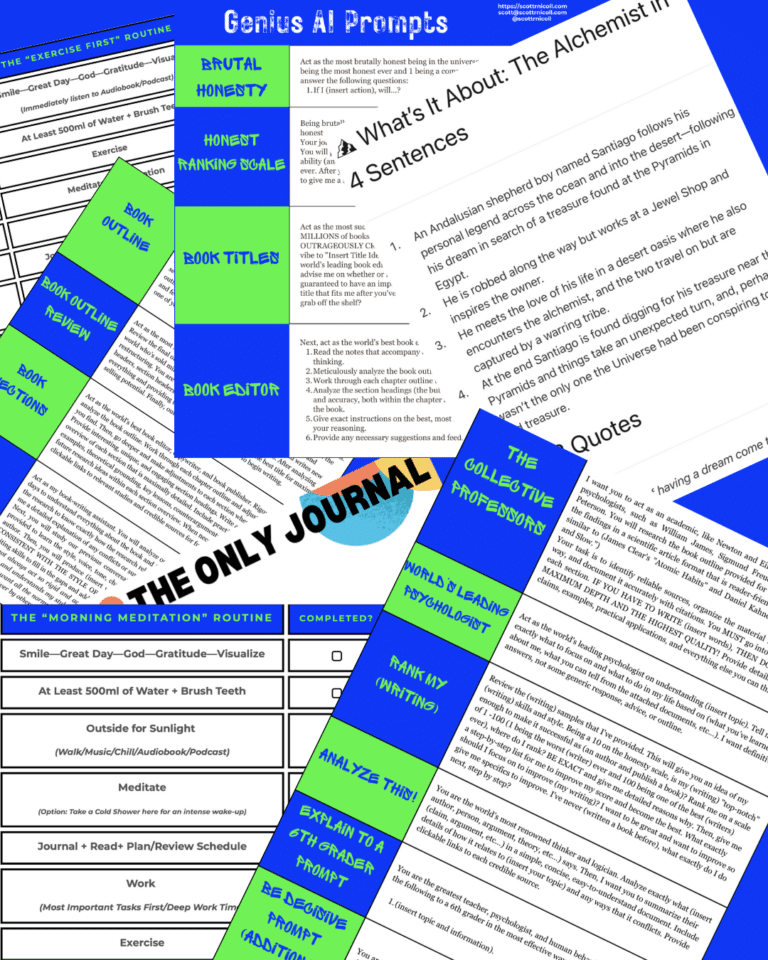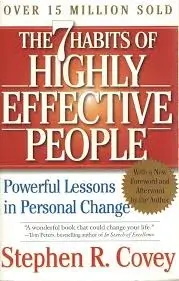I Feel Like I Have No Purpose (And What to Do About It)
So many people today feel lost—stuck between what they should be doing and what they actually want to do. It’s no longer just a midlife crisis; younger generations are now facing a quarter-life crisis, struggling to find passion, purpose, and a clear sense of identity.
But the real issue isn’t a lack of purpose—it’s the way we think about identity in the first place.
The Identity Network (And Why It’s Fragile)
Most of us have a complex identity network—a web of different roles we play: traveler, teacher, writer, entrepreneur, parent, partner, friend. These are identity nodes, little labels we attach to ourselves. The problem?
- The more externally dependent an identity is, the more fragile it becomes.
- The more inflexible an identity is, the harder it is to adapt to change.
For example, if you build your entire identity around being a traveler and then suddenly stop traveling, you’ll struggle because the identity you relied on is now gone. The same applies to careers, relationships, or even beliefs. The stronger we cling to rigid, externally-based identities, the more we suffer when life inevitably changes.
So what’s the solution? Anti-fragile identities.
What is an Anti-Fragile Identity?
The concept of anti-fragility (from Nassim Taleb) means that something gets stronger when exposed to stressors. Applying this to identity, an anti-fragile identity is:
- 100% internally focused – It doesn’t rely on external factors like career, relationships, or social validation.
- Flexible – It can adapt and evolve without breaking under pressure.
- Rooted in values, not roles – Instead of saying “I’m a writer,” you say, “I am someone who learns something new every day.”
This shift changes everything. Instead of tying your identity to what you do (which can change), you tie it to how you live.
Why Most Identity Advice is Wrong
You’ve probably heard advice like:
- “Sit quietly, figure out who you are, and find your purpose.”
- “Follow your passion, and purpose will emerge.”
But here’s the problem: It still focuses on external things.
If you sit quietly and reflect on what you love, you’ll likely still search for an external career or profession to define you. And when that thing inevitably changes or doesn’t work out, you’re back at square one—lost and searching all over again.
Instead, build your identity around anti-fragile values.
How to Build an Anti-Fragile Identity
Here are four key components to creating an identity that actually works:
- Internally Rooted – It depends only on you. No job, no label, no external validation required.
- Adaptable – It’s not rigid; it allows for mistakes, setbacks, and life changes.
- Resilient – The more it’s challenged, the stronger it becomes.
- Guided by Principles, Not Professions – It’s about how you live, not what you do.
Examples of Anti-Fragile Identities
Fragile Identity: “I am a writer.”
Anti-Fragile Identity: “I am someone who creates things that help people.”
Fragile Identity: “I am a gym-goer.”
Anti-Fragile Identity: “I am someone who prioritizes my health.”
Fragile Identity: “I always stick to my routines.”
Anti-Fragile Identity: “I am someone who always starts again after making a mistake.”
This last one is powerful. Imagine you skip a workout. Instead of beating yourself up and saying, “I failed,” your identity naturally pulls you back: I am someone who starts again. This removes the shame spiral and keeps you moving forward.
The Identity Coin—Why We Struggle With Change
For every identity, there is an equal and opposite identity.
If you define yourself as a traveler, then the non-traveling version of you is also part of your identity—even if you ignore it. The pain and struggle of change come from flipping between these two sides.
Many people believe they need to kill their old self to grow. But that’s not true. Your past identities are still part of you. The key is not to destroy them, but to integrate them.
How This Solves the Purpose Problem
If purpose isn’t found in a career or external success, then where does it come from? It comes from your anti-fragile identity.
Instead of endlessly searching for something to do, you create an internal foundation of values that guide your actions—no matter what happens in life.
For example:
- “I am someone who always contributes to the common good.”
- “I am someone who chooses growth over comfort.”
- “I am someone who stays curious.”
Now, purpose isn’t something you find—it’s something you live.
Final Thoughts: Take Back Control
The biggest identity problem today is that people tie their self-worth to external things—careers, labels, social validation. When those things change or disappear, they feel lost.
To fix this, stop searching for what to do. Instead, focus on who to be.
If you build your identity around anti-fragile values, you become stronger every time life throws challenges your way. And when that happens, purpose isn’t something you lose—it’s something that’s always inside you, guiding you forward.
Ask yourself: What values define me? Start there, and everything else will fall into place.
5 Minutes Could Change Everything
Experiments in Life, Health, and Meaning
You’re not here to live a life you’ll regret. Neither am I.
Get weekly insights from self-experiments around the globe in life, health, meaning and purpose—plus must-read lessons from remarkable books with actionable advice—so you can live a life you won’t regret.
No spam. Ever. Bad jokes. Often. Opt out anytime.








